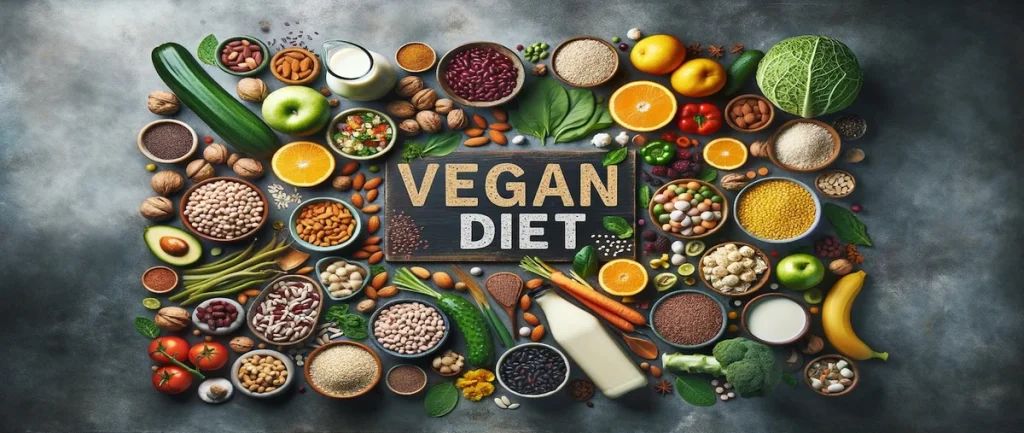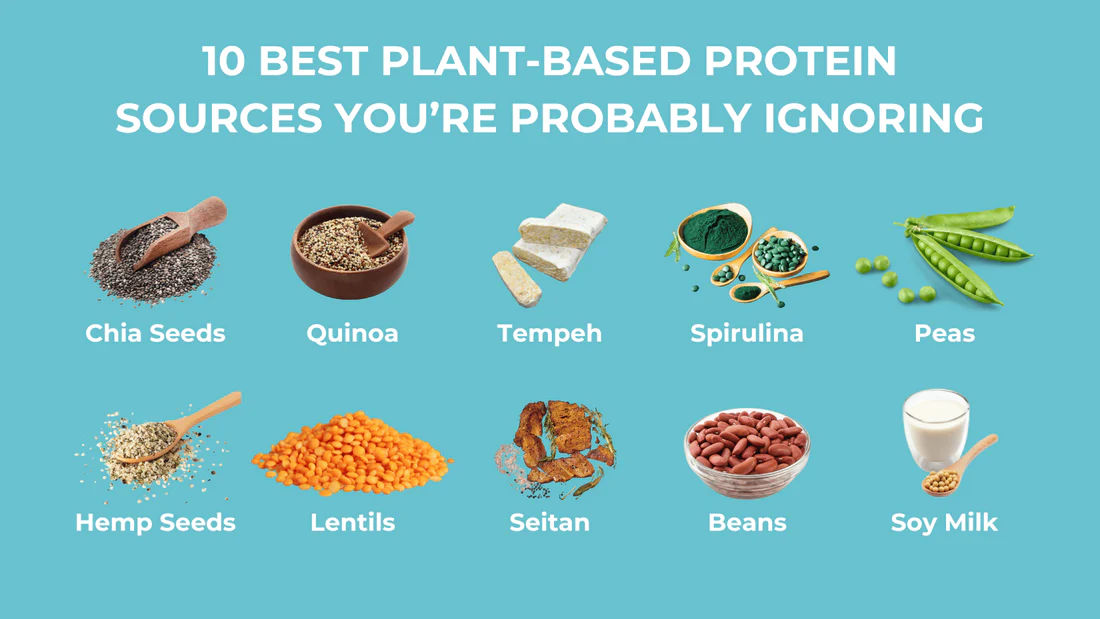Veganism continues to spark curiosity and debate, yet it remains shrouded in persistent myths that often misrepresent its true essence. From concerns about nutrition and muscle building to assumptions about cost and accessibility, these misconceptions can create unnecessary barriers for those considering a plant-based lifestyle. In reality, veganism offers a balanced, diverse, and sustainable way of living when approached with knowledge and thoughtful planning. This article addresses the most common myths surrounding veganism, providing clear evidence to challenge misinformation while highlighting the many benefits of this compassionate choice. Whether you’re exploring veganism or seeking clarity on its principles, discover how plant-based living is more practical—and rewarding—than you might think
Veganism has been gaining popularity in recent years as more people become aware of the negative impacts of animal agriculture on the environment, animal welfare, and human health. However, with this rise in interest, there has also been an increase in myths and misconceptions surrounding veganism. These misconceptions often stem from a lack of understanding about what veganism truly entails, leading to misunderstandings and misinformation. As a result, many individuals are hesitant to adopt a vegan lifestyle due to these false beliefs. In this article, we will address some of the most common myths and misconceptions about veganism and provide evidence-based information to dispel them. Our goal is to educate and inform readers about the reality of veganism, allowing them to make well-informed decisions about their dietary choices. By addressing these misconceptions, we hope to encourage a more open-minded and accurate understanding of veganism, ultimately promoting a more compassionate and sustainable way of living.
Vegan diets lack essential nutrients
While it is true that certain essential nutrients may require more attention in a vegan diet, it is important to note that with proper planning and a varied diet, vegans can meet their nutritional needs. Plant-based sources can provide ample amounts of protein, iron, calcium, omega-3 fatty acids, and vitamins such as B12 and D. Planning meals to include a variety of legumes, whole grains, nuts, seeds, fruits, and vegetables can ensure a well-rounded nutrient intake. Additionally, fortified plant-based alternatives like non-dairy milk, tofu, and breakfast cereals can help bridge any potential gaps in nutrient requirements. With knowledge and awareness, vegans can easily achieve a nutritionally balanced diet that supports their overall health and well-being.

Plant-based protein is insufficient
It is often claimed that plant-based protein is insufficient compared to animal-based protein sources. However, this is a common misconception that fails to recognize the wide variety of plant-based protein options available. Legumes such as lentils, chickpeas, and black beans are excellent sources of protein and can be easily incorporated into meals. Additionally, grains like quinoa and amaranth, as well as nuts and seeds, offer substantial protein content. It is important to note that a diverse and balanced vegan diet can provide all essential amino acids necessary for optimal health. By combining different plant-based protein sources throughout the day, individuals can meet their protein needs without relying on animal products. It is crucial to dispel the myth that plant-based protein is insufficient, as it undermines the viability and nutritional adequacy of vegan diets.

Vegans can’t build muscle
Another common myth surrounding veganism is the belief that vegans cannot build muscle. This misconception stems from the assumption that animal-based protein is superior for muscle development. However, numerous studies have shown that individuals following a well-planned vegan diet can indeed build and maintain muscle mass. Plant-based protein sources such as tofu, tempeh, seitan, and soybeans are rich in amino acids necessary for muscle growth. Additionally, vegan bodybuilders and athletes have achieved remarkable physical strength and endurance, debunking the notion that animal products are indispensable for muscle development. With careful attention to proper nutrition and a varied diet that includes an ample amount of plant-based protein, vegans can successfully achieve their fitness goals and build muscle just like their omnivorous counterparts.
You need supplements to thrive
It is often believed that following a vegan diet necessitates the use of supplements in order to thrive. However, this is not necessarily true. While there are certain nutrients that may require special attention when following a plant-based diet, such as vitamin B12 and omega-3 fatty acids, obtaining these nutrients can be achieved through a well-planned vegan diet. Vitamin B12, for example, can be obtained through fortified foods or supplementation to ensure adequate intake. Additionally, plant-based sources of omega-3 fatty acids, such as flaxseeds, chia seeds, and walnuts, can be incorporated into the diet to meet the body’s needs. With proper planning and a well-balanced approach to nutrition, individuals following a vegan lifestyle can obtain all the necessary nutrients for optimal health without relying solely on supplements.
Veganism is too expensive
Contrary to popular belief, adopting a vegan lifestyle does not have to be expensive. While it is true that specialty vegan products and organic produce can sometimes come with a higher price tag, it is important to note that a vegan diet can be just as affordable as any other diet when approached thoughtfully. By focusing on whole foods such as grains, legumes, fruits, and vegetables, which are often more budget-friendly, individuals can easily meet their nutritional needs without breaking the bank. Moreover, buying in bulk, meal planning, and cooking at home can significantly reduce costs. Additionally, seasonal and locally sourced produce can provide a cost-effective and sustainable option for obtaining fresh ingredients. By making informed choices and being mindful of expenses, veganism can be an accessible and affordable dietary option for individuals from all walks of life.
You’ll always feel hungry
A common misconception about veganism is the belief that individuals will always feel hungry on a plant-based diet. However, this is far from the truth. In fact, a well-planned vegan diet can be just as satisfying and filling as any other dietary approach. The key lies in understanding the importance of proper nutrition and making smart food choices. Incorporating a variety of nutrient-dense foods such as whole grains, legumes, nuts, seeds, and plenty of fruits and vegetables can provide ample fiber, protein, and essential vitamins and minerals to keep you feeling satisfied and energized throughout the day. Additionally, integrating healthy fats from sources like avocados, coconut oil, and olive oil can further enhance satiety. By focusing on a balanced and diverse vegan diet, you can easily meet your nutritional needs while enjoying delicious and fulfilling meals.
Veganism is a restrictive lifestyle
Contrary to the belief that veganism is a restrictive lifestyle, it is important to note that being vegan does not necessarily mean depriving oneself of a wide variety of food choices. While it is true that vegans abstain from consuming animal products, this does not equate to a limited or monotonous diet. In fact, the vegan lifestyle encourages individuals to explore and experiment with a plethora of plant-based alternatives that are both nutritious and delicious. From tofu and tempeh to lentils and chickpeas, the options for plant-based protein sources are diverse and abundant. Similarly, the availability of plant-based milks, cheeses, and other dairy alternatives has greatly expanded in recent years, providing vegans with an array of options to recreate their favorite dishes. Furthermore, the growing popularity of veganism has led to the emergence of innovative and flavorful plant-based substitutes for meat, allowing individuals to enjoy the textures and flavors they may have previously associated with animal products. By embracing a vegan lifestyle, one can open up a world of culinary possibilities and discover a range of delectable foods that are both ethically and environmentally conscious.
It’s impossible to eat out
Eating out as a vegan is often seen as a daunting task, with the misconception that there are limited options available. However, this belief couldn’t be further from the truth. In recent years, there has been a significant increase in the number of restaurants and eateries that cater specifically to vegan dietary needs. From vegan-friendly cafes to fine dining establishments, the options for plant-based meals have expanded greatly. Many restaurants now offer dedicated vegan menus or clearly mark vegan options on their regular menus. Additionally, chefs have become more creative in preparing flavorful and satisfying vegan dishes that appeal to a wide range of tastes. With a little research and planning, eating out as a vegan has become not only possible but also enjoyable and convenient. Veganism should no longer be seen as a hindrance to socializing or dining out, but rather as an opportunity to explore new flavors and support establishments that prioritize sustainability and compassion.

In conclusion, it is important to address common myths and misconceptions about veganism in order to promote a more accurate and informed understanding of this lifestyle. While there may be some challenges and misconceptions associated with veganism, it is ultimately a personal choice that should be respected and not dismissed based on misconceptions. By educating ourselves and others, we can create a more inclusive and understanding society that values different perspectives and choices. Let us continue to have respectful and open conversations about veganism and other lifestyle choices.
3.8/5 - (12 votes)



